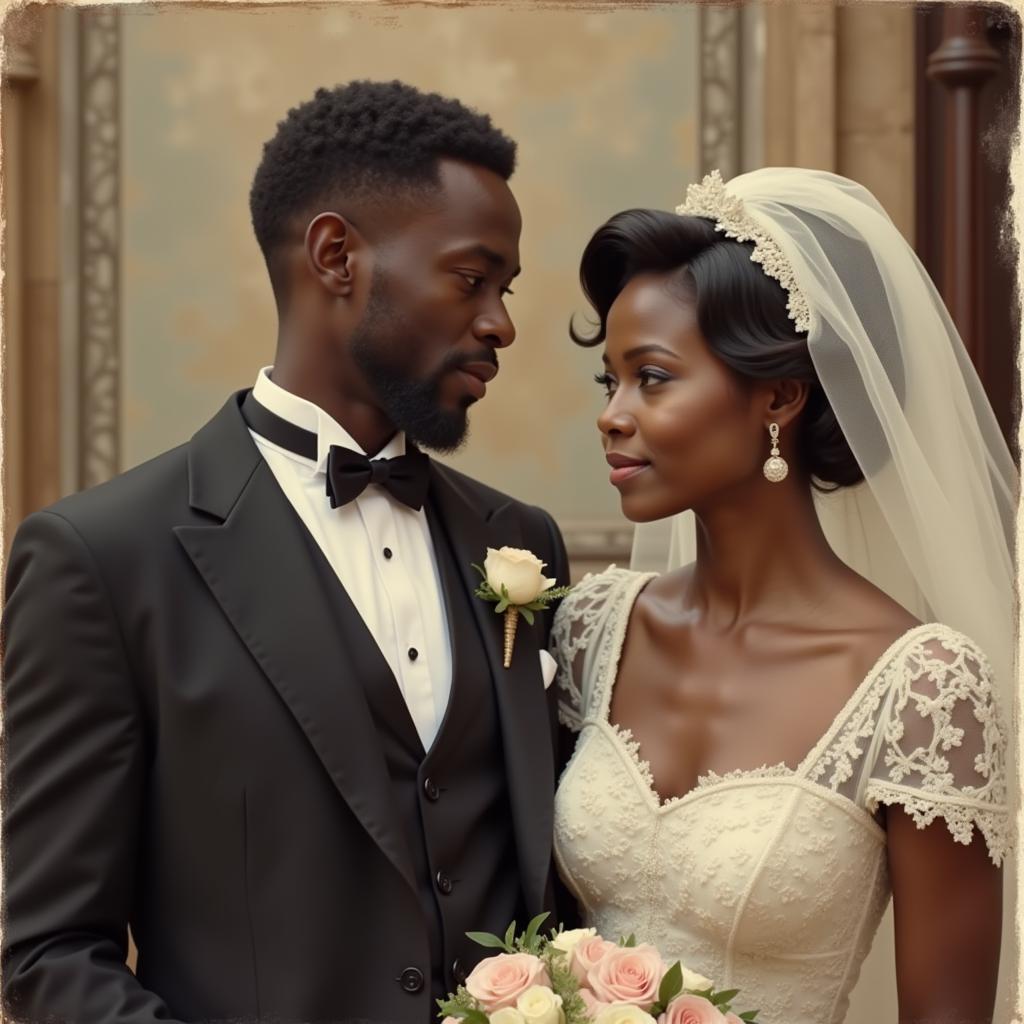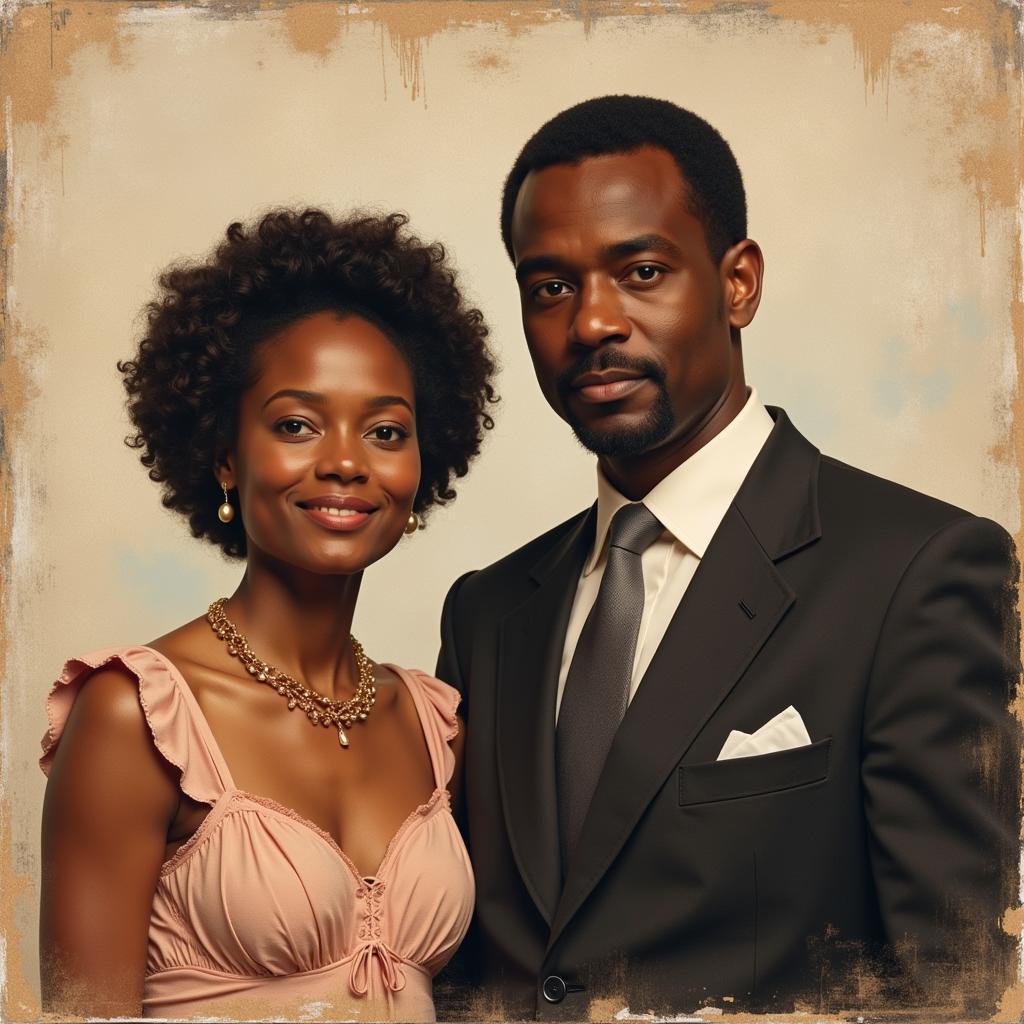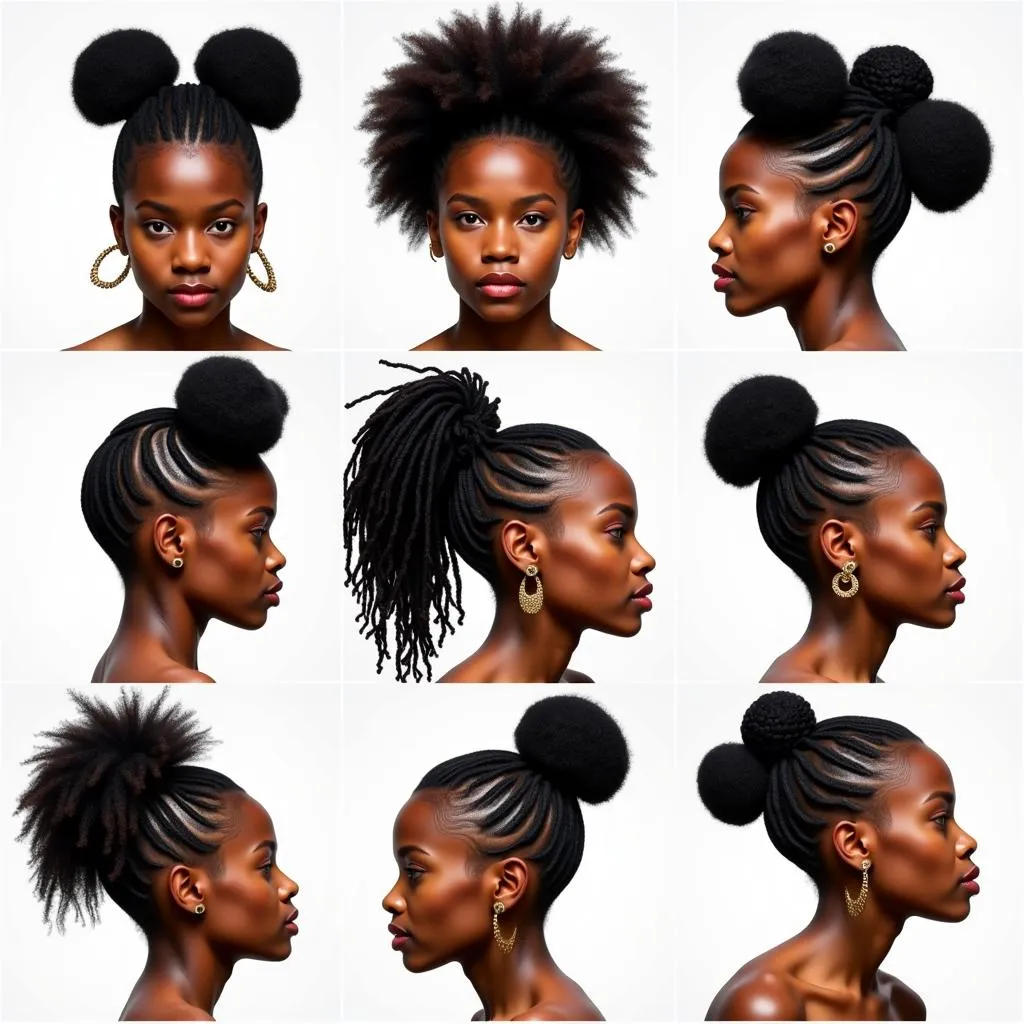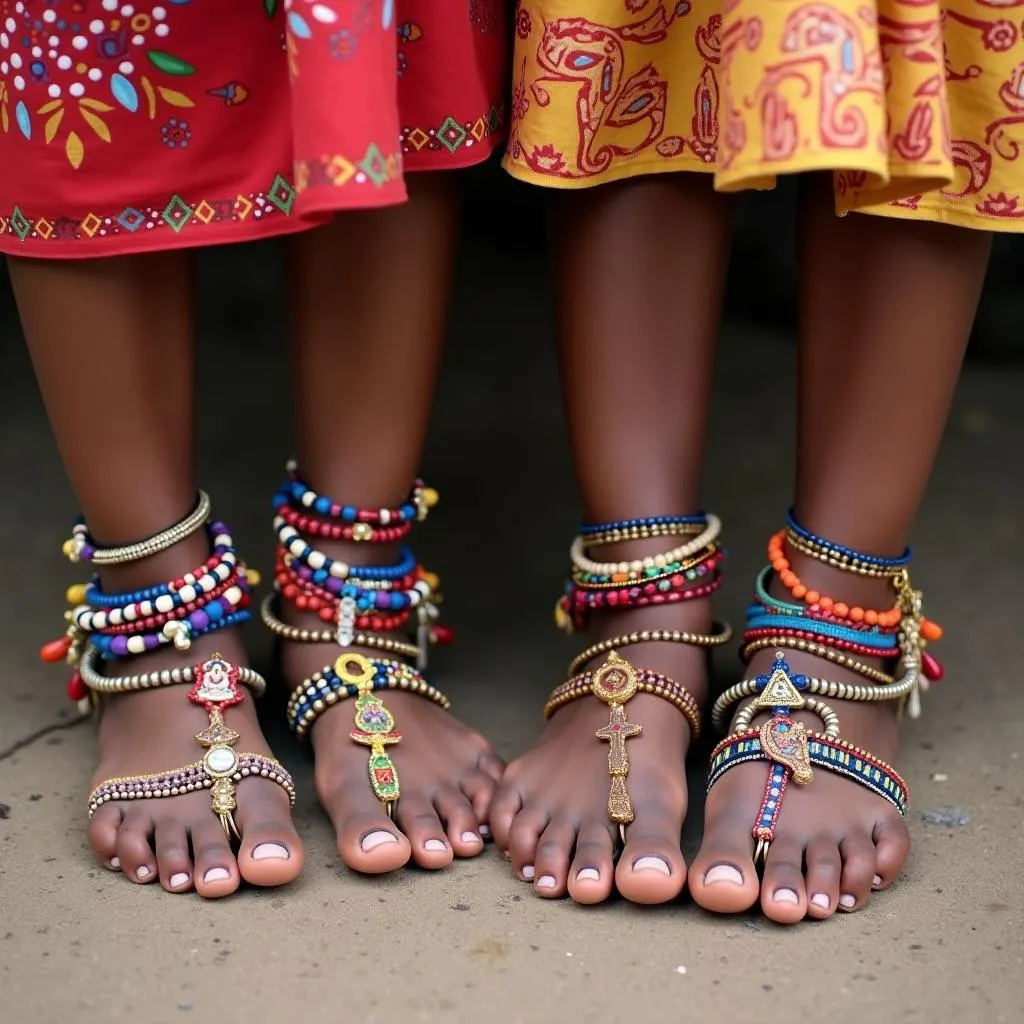African American Marriage Laws: A Historical Overview
African American Marriage Laws have a complex and often painful history, deeply intertwined with the legacy of slavery and racial discrimination in the United States. Understanding this history is crucial to appreciating the progress made and the challenges that remain in ensuring equal rights for all.
From Denial to Recognition: The Evolution of African American Marriage Laws
Before the Civil War, marriage between enslaved Africans was not legally recognized. Slaveholders saw marriage as a threat to their control and profitability. Families were often torn apart, and the sanctity of marriage was denied to an entire population. The end of slavery marked a turning point, with the passage of the 13th Amendment in 1865. However, the struggle for equal marriage rights was far from over. Newly freed African Americans faced numerous legal and social barriers to marriage, including discriminatory laws and social stigma.
 African American Marriage Post Civil War
African American Marriage Post Civil War
Reconstruction and the Fight for Equality
The Reconstruction era (1865-1877) saw the passage of several laws aimed at granting African Americans full citizenship rights, including the right to marry. The 14th Amendment, ratified in 1868, guaranteed equal protection under the law, and the 15th Amendment, ratified in 1870, prohibited denial of the right to vote based on race. These amendments laid the groundwork for legal challenges to discriminatory marriage laws. Despite these legal advancements, African Americans continued to face significant obstacles in exercising their right to marry. “Black codes,” enacted in many Southern states, restricted the movement and economic opportunities of African Americans, including their ability to form families and marry.
Jim Crow and the Continued Struggle
The Jim Crow era, which followed Reconstruction, saw the resurgence of discriminatory practices and laws, including those related to marriage. States implemented “anti-miscegenation” laws, prohibiting interracial marriage. These laws, upheld by the Supreme Court in the 1883 case of Pace v. Alabama, remained in effect until 1967, when the Supreme Court declared them unconstitutional in Loving v. Virginia. This landmark decision was a significant victory for marriage equality, striking down the last remaining legal barriers to interracial marriage. The fight for marriage equality was intertwined with the broader Civil Rights Movement. Activists fought for desegregation, voting rights, and an end to all forms of racial discrimination, recognizing that marriage rights were essential to full equality.
 Loving v. Virginia Landmark Case
Loving v. Virginia Landmark Case
African American Marriage Today
The legacy of discriminatory laws and social practices continues to impact African American families today. Socioeconomic disparities, including higher rates of poverty and incarceration, can create barriers to marriage and family stability. “The historical denial of marriage rights has had long-lasting consequences,” explains Dr. Anika Johnson, a sociologist specializing in African American family studies. “These historical injustices have contributed to disparities in wealth, education, and health that continue to affect Black families today.” Despite these challenges, African American families demonstrate remarkable resilience and strength. Marriage remains an important cultural institution, and many Black families are thriving, building strong and supportive relationships.
Conclusion: A Journey Towards Equality
The history of African American marriage laws is a testament to the enduring struggle for equality and justice in the United States. From the denial of basic human rights during slavery to the landmark victory in Loving v. Virginia, the journey has been long and arduous. While legal barriers have been removed, the fight for true equality continues, as social and economic disparities still impact African American families. Understanding this history is crucial to building a more just and equitable future for all. For more information on the struggles faced by the African American community, consider reading about African American female-headed households. The fight for equal rights extends beyond marriage and includes advocating for LGBTQ+ rights, including celebrating African gay pride.
FAQs
- When were anti-miscegenation laws overturned in the US? 1967, with the Loving v. Virginia Supreme Court decision.
- What were “Black Codes”? Discriminatory laws enacted in Southern states after the Civil War that restricted the rights of African Americans, including their ability to marry.
- What impact did slavery have on African American marriage? Marriage between enslaved people was not legally recognized, denying them basic human rights and family stability.
- How did the Civil Rights Movement contribute to marriage equality? The Civil Rights Movement fought against all forms of racial discrimination, including discriminatory marriage laws, recognizing that marriage rights are fundamental to equality.
- What challenges do African American families face today? Socioeconomic disparities and the legacy of historical injustices contribute to challenges in achieving marriage equality and family stability.
- Why is it important to understand the history of African American marriage laws? Understanding this history is crucial to recognizing the progress made, acknowledging the challenges that remain, and working towards a more just and equitable future.
- Where can I find an African immigration lawyer near me? You can find information about African immigration lawyers by searching online for african immigration lawyer near me.
Related Resources
For further exploration of related topics, consider reading about african american native american heritage or learning more about issues related to african black teen sex.
Need help? Contact us at Phone: +255768904061, Email: [email protected] or visit us at Mbarali DC Mawindi, Kangaga, Tanzania. Our customer support team is available 24/7.


